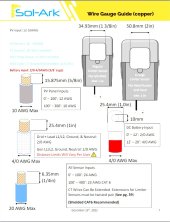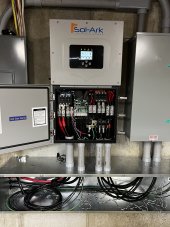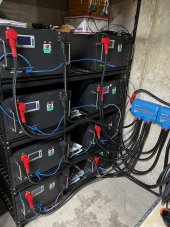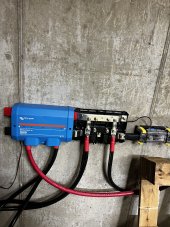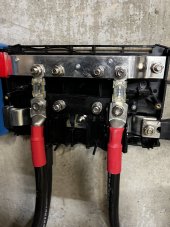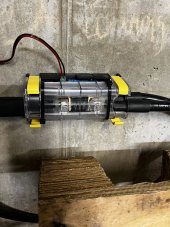johnskdyvn
New Member
- Joined
- Nov 8, 2021
- Messages
- 53
Hello. I am almost to the point of getting my solar system up and running. I have read SO much about solar (electricity is my mental block) that I am now starting to confuse myself.
I have a 3000w Growatt 48v inverter.
I also have (4) SOK batteries that i plan on connecting in series (12v 206ah per battery).
The last thing I need to order online is a fuse for this system. I was going to put in a Class T fuse between the +battery terminal and the inverter. What amp fuse would i need for this? 400A?
The only other question i have is what cable size do i need for the batteries to the inverter? I have read SO much on this and i keep getting numerous different answers. Also, what size cables to use for the connecting of the batteries in series? Should these cables be the same size as the cables that connect the battery bank to the inverter? i.e. 4 gauge cables connecting the batteries in series AND 4 gauge cables connecting the battery bank to the inverter?
Just need to order a class T fuse, and some properly sized cables and i'd love to start putting this thing together within the next 2 weeks.
Thanks you in advance for all of your help. Lots of great advice on this forum.
Johnny
I have a 3000w Growatt 48v inverter.
I also have (4) SOK batteries that i plan on connecting in series (12v 206ah per battery).
The last thing I need to order online is a fuse for this system. I was going to put in a Class T fuse between the +battery terminal and the inverter. What amp fuse would i need for this? 400A?
The only other question i have is what cable size do i need for the batteries to the inverter? I have read SO much on this and i keep getting numerous different answers. Also, what size cables to use for the connecting of the batteries in series? Should these cables be the same size as the cables that connect the battery bank to the inverter? i.e. 4 gauge cables connecting the batteries in series AND 4 gauge cables connecting the battery bank to the inverter?
Just need to order a class T fuse, and some properly sized cables and i'd love to start putting this thing together within the next 2 weeks.
Thanks you in advance for all of your help. Lots of great advice on this forum.
Johnny



